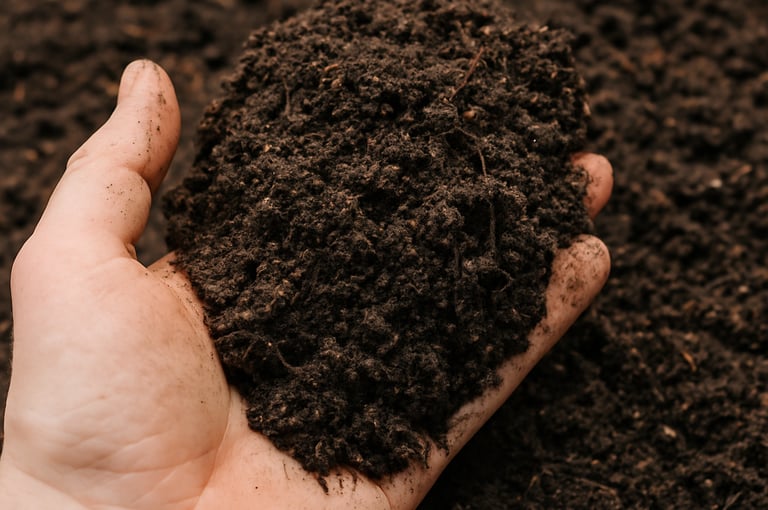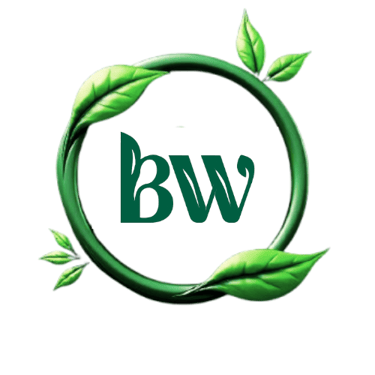Why Organic Soil Is Best for Garden: A Complete Guide for Healthy Plant Growth
Blog post description.
7/31/20253 min read


Every garden, whether small or large, thrives from the ground up. At the heart of every flourishing plant, vibrant flower, or juicy vegetable is a healthy foundation — garden soil. But not just any soil will do. If you're looking to grow a lush, nutrient-rich, and sustainable garden, organic soil is the best choice for gardening.
In this comprehensive blog, we’ll explore why organic soil is superior, how it works, and how to use it effectively for different types of gardens. Whether you're a home gardener, a landscaping professional, or an agricultural exporter, this guide will help you understand why organic soil is best for garden success.
1. What Is Organic Soil?
Organic soil refers to soil that is composed primarily of natural, decomposed materials — plant matter, compost, manure, and other organic residues. It avoids synthetic chemicals, pesticides, or fertilizers and mimics natural forest floor ecosystems.
Organic soil is alive with beneficial microbes, fungi, earthworms, and bacteria, all working together to break down nutrients and improve plant health. This rich ecosystem is what sets organic soil apart from its chemically treated counterparts.
2. Difference Between Organic and Inorganic Soil
Feature Organic Soil Inorganic Soil Composition Natural compost, manure, humus Synthetic chemicals, sand, perlite Nutrient Source Slow-release from organic matter Fast-acting fertilizers Microbial Life Rich in beneficial organisms Often sterile or chemically altered Environmental Impact Eco-friendly and sustainable May harm soil and water ecosystems Long-Term Health Improves soil structure over time Degrades with overuse
Organic soil supports both short- and long-term plant health by creating a self-sustaining environment. In contrast, inorganic soils provide short bursts of nutrients but may damage root systems and reduce soil fertility over time.
3. Why Organic Soil Is Best for Garden Health
Let’s explore the core reasons why organic soil is best for garden use:
a. Improved Soil Structure
Organic soil contains humus and organic matter that create air pockets, allowing better root penetration, water absorption, and oxygen flow. This helps prevent soil compaction and supports root growth.
b. Rich Nutrient Profile
As organic materials decompose, they slowly release nutrients like nitrogen, phosphorus, and potassium, feeding plants over time and reducing the need for synthetic fertilizers.
c. Promotes Beneficial Microorganisms
Healthy soil contains billions of beneficial bacteria and fungi. These organisms help plants absorb nutrients, fight off diseases, and build immunity naturally.
d. Moisture Retention
Organic soil has excellent water-holding capacity, which is especially helpful in hot climates or container gardening.
e. Eco-Friendly Gardening
Using organic soil supports sustainable farming practices, reduces chemical runoff, and protects pollinators like bees and butterflies.
4. Components of High-Quality Organic Soil
Good organic garden soil is made up of several key components:
Compost: Decomposed vegetable matter adds nutrients and texture.
Worm Castings: Boost plant growth and microbial activity.
Coconut Coir/Peat Moss: Retains moisture and improves aeration.
Manure: Natural fertilizer that boosts nitrogen and microbial life.
Leaf Mold or Humus: Adds long-term fertility and organic matter.
Rock Dust (optional): Adds trace minerals for overall soil health.
5. Types of Organic Soil for Different Gardening Needs
1. Loamy Organic Soil
Best for: Vegetables, fruit trees, and flowers
Benefits: Excellent drainage, nutrient retention, easy to work with
2. Sandy Organic Soil
Best for: Root crops like carrots, radishes
Benefits: Quick drainage, needs compost to boost fertility
3. Clay-Based Organic Soil
Best for: Moisture-loving plants like lilies or irises
Benefits: Holds nutrients well but needs aeration
4. Potting Mix (Organic)
Best for: Indoor or container plants
Benefits: Light, airy, and sterilized to avoid pests
Tip: Always add organic mulch to retain moisture and improve surface quality.
6. How to Make Your Own Organic Soil at Home
Want to DIY your garden’s soil mix? Here’s a simple recipe:
DIY Organic Garden Soil Recipe
1 part compost
1 part coconut coir or peat moss
1 part perlite or coarse sand
2–3 handfuls of worm castings
Optional: Add crushed eggshells or wood ash for calcium
Mix all components thoroughly and let the mixture sit for a few days before using. This allows beneficial microbes to activate.
7. Organic Soil for Specific Plants
Vegetables
Need nutrient-dense soil
Best Mix: Loamy soil + compost + manure
Flowers
Require well-drained soil with enough phosphorus
Best Mix: Organic potting mix + bone meal
Herbs
Prefer slightly dry, well-drained soil
Best Mix: Sandy loam + compost
Succulents
Need dry, loose, and well-aerated soil
Best Mix: Sandy soil + coconut coir + perlite
8. How to Improve Garden Yield with Organic Soil
Using organic soil in the garden can increase your yield dramatically if managed well. Here's how:
Rotate crops annually to prevent nutrient depletion
Add compost every season
Mulch regularly to retain moisture and suppress weeds
Test your soil pH and adjust with lime (alkaline) or sulfur (acidic)
Use green manure or cover crops like clover to restore nutrients
These steps regenerate the soil and support long-term productivity.
9. Organic Soil in Sustainable Gardening
Sustainable gardening is the future of agriculture, and organic soil plays a huge role:
Reduces chemical pollution
Builds long-term soil fertility
Conserves water due to improved retention
Supports pollinators and beneficial insects
Increases biodiversity
Many gardening experts and organic exporters in India and the UAE are shifting toward organic soil export as demand grows globally for eco-friendly farming solutions.
10. Where to Buy or Export Quality Organic Soil
For Home Gardeners:
Look for trusted sources that sell certified organic gardening soil. Make sure the packaging indicates:
Organic certification
Ingredients (no synthetic fertilizers or pesticides)
Nutrient composition (NPK levels
